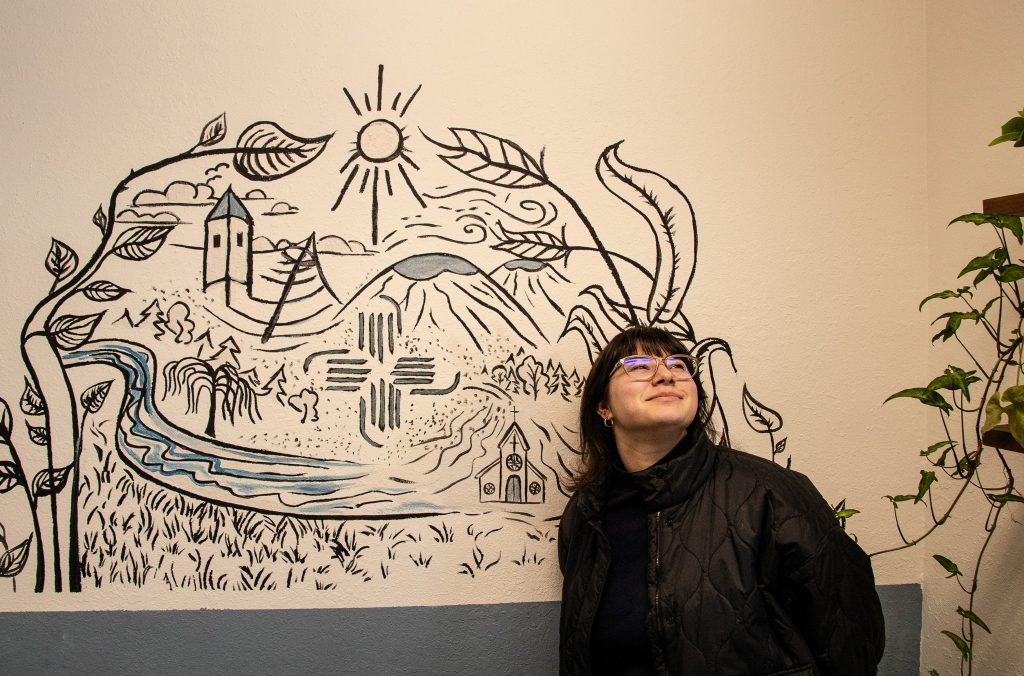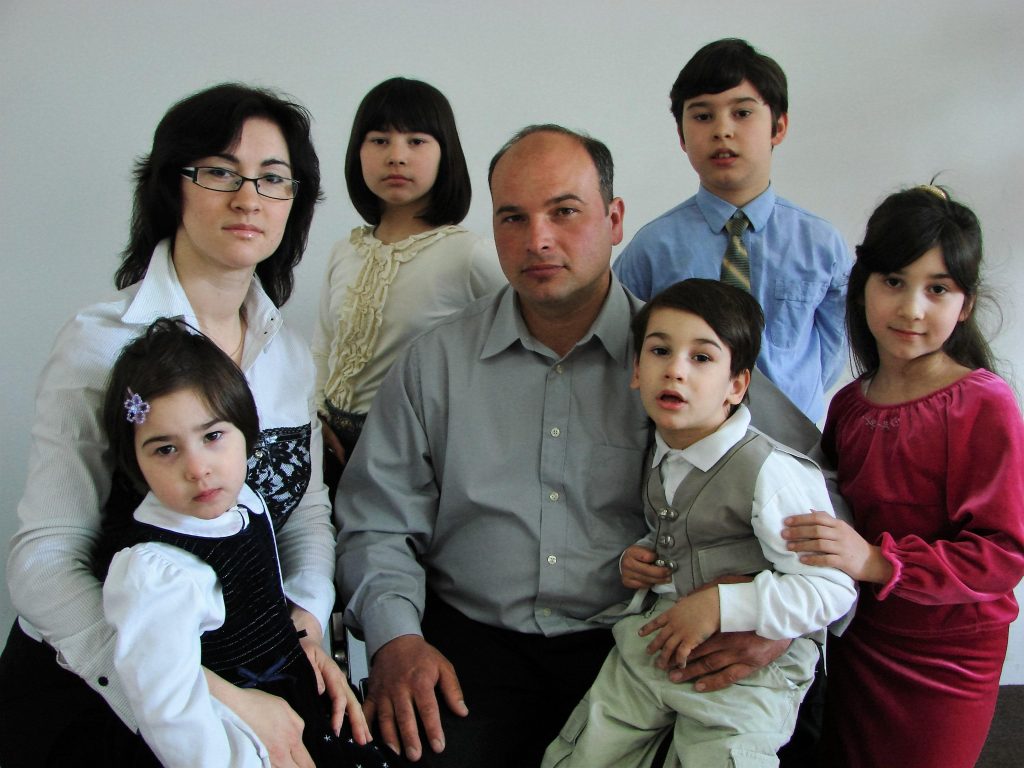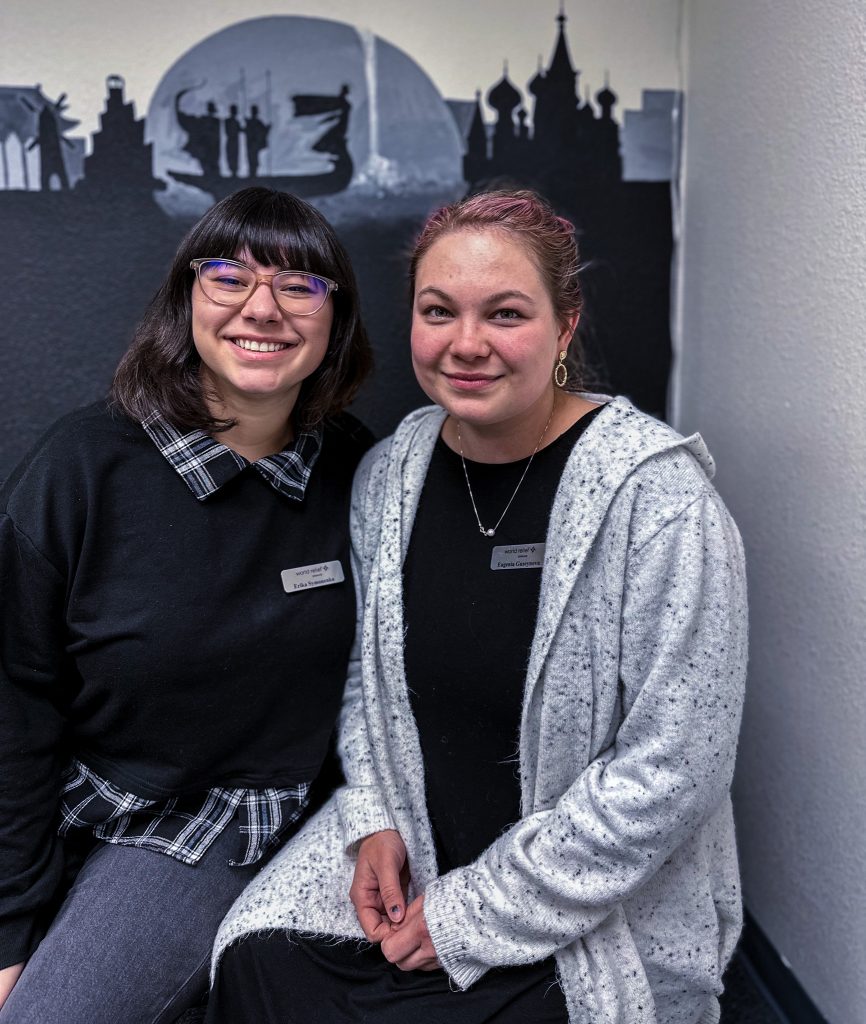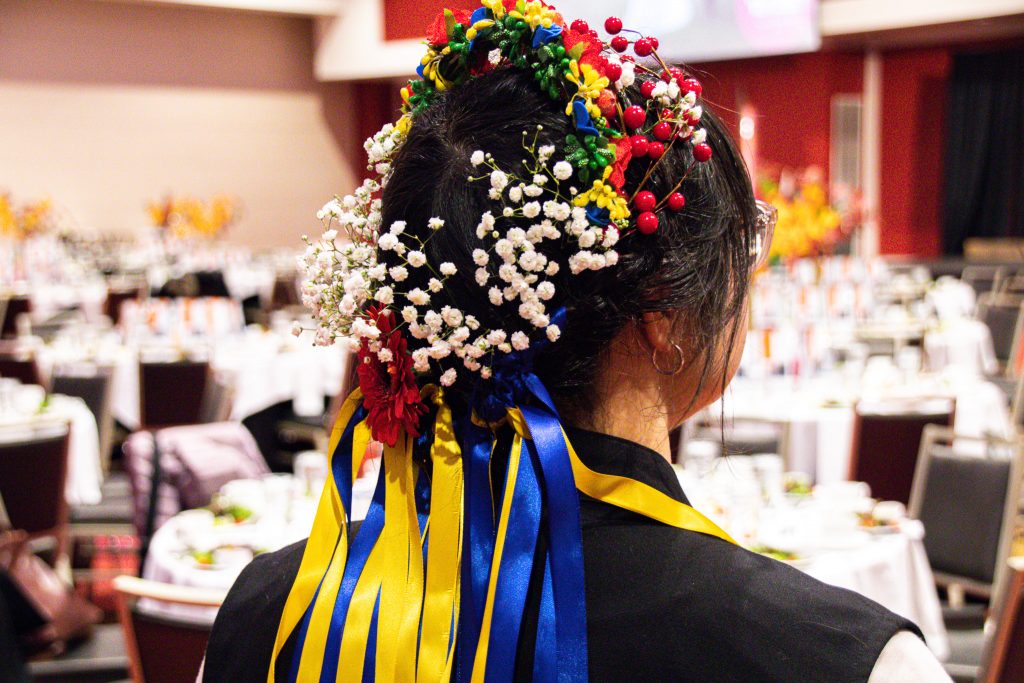When Russia invaded Ukraine in February last year, Erika Symonenko was working as a salesperson for a garage door company. “I went to Germany right after the war started to help some of my family members [who had fled Ukraine].”
When she got back, however, she was desperate to do more.
Being Part of the Solution
“I couldn’t focus at my old job. I was not able to work. My co-workers understood that I will not be able to focus or do anything unless it’s involved with helping refugees… All I could do was check the news, and I knew that I shouldn’t, but I have to know what’s happening, so I kept checking the news and I want to help. The worst feeling is that you are safe when your friends and your church and your family are getting bombed. You’re feeling guilty. So it was a very depressing moment, and the first thing that comes to mind is the only way that you will be able to help is when they start coming here. So when people start coming here, World Relief is going to be the first to respond.”

Erika decided she needed to get a job at World Relief. Her old employers offered her a raise to get her to stay. “They would have paid me more than I get here, but in the end, this is what I needed to do.” She started as the housing specialist in April of 2022 .
“The worst feeling is that you are safe when your friends and your church and your family are getting bombed.” – Erika
Immigration in 2008
Erika herself came to the US from Ukraine with her family in Summer 2008. Her story reflects the longstanding, complicated relationship between Russia and Ukraine.
Her family’s church, Irpin Bible Church, was very involved with the Orange Revolution in 2004, a peaceful revolution to protest the fraudulent presidential election in the same year when the Russian-backed candidate (Viktor Yanukovych) was awarded the presidency even though his opponent (Viktor Yushchenko) had received the majority of the vote. Irpin Bible Church, located only 20 miles from Kyiv, provided food, tents, coats, a place to sleep and other resources to the protestors.
“During the whole situation,” Erika said, “we would often be without light or heat because that would come from Russia. They would cut off our resources. We couldn’t do homework. We had to use candles.”
Yushchenko, whose campaign color was orange, was eventually awarded the presidency in a recount in early 2005.
“The protests of late 2004 initially succeeded in preventing Kremlin-backed candidate Viktor Yanukovych from stealing the Ukrainian presidency and made possible the election of his reformist rival, Viktor Yushchenko. However, Yushchenko soon found himself beset by infighting and was unable to lead Ukraine decisively towards Euro-Atlantic integration during what proved to be a hugely frustrating five-year term in office. This paved the way for Yanukovych to mount an unlikely comeback and win the 2010 presidential election race.” (Atlantic Council website)
Erika’s parents became very concerned about their children’s future. “They realized there will be no future for their children to build, and since it is so difficult to get an education and get it transferred to America, they decided they will move here (to the US) as soon as possible.”
Another significant factor in their decision to immigrate to the US was the fact that Erika’s youngest brother has cerebral palsy. “They had friends in Germany and several other countries, but America is the number one country for people with disabilities, so my parents decided it is best. There is so much he receives here that he would not have gotten in another other country.” (Erika’s brother is 21 now and attends Spokane Community College.)
A Rough Start

Erika was 11 when they arrived. “They put me in 7th grade because there was lots of confusion… They give me my class schedule, which I had no idea how to navigate, and for some reason, there was no one to go with me to the school, so they just randomly put me in class, and the lady who was supposed to help me navigate the first couple of days, she had her Spanish dictionary with her, and she kept pointing at it, and I would just ignore. And she thought that maybe I was just very traumatized or something, and I can’t respond, but within a couple of days, she realized that I just honestly have no idea what’s going on, and she got really upset and angry, and she kept pointing fiercely in the dictionary, trying to figure out when my birthday is and things like that, and why am I not putting my name at the beginning of the worksheet paper. Later, I found a Ukrainian boy, and I asked him to come up to her and tell her that I don’t speak Spanish, and even though I have dark hair and dark eyes, it doesn’t mean that I am Hispanic.
“We laughed a lot about that later, and now, it’s an ongoing joke, but it was very stressful at the moment.”
According to the Spokesman Review, before the war started, there were roughly 30,000 Ukrainian Americans in Spokane County, the vast majority “Christian refugees who immigrated to the U.S. to escape religious persecution.” A second article estimates 2,500 more have arrived since the war began.
New Arrivals

At World Relief, Russian-Americans and Ukrainian-Americans work side by side without conflict. Erika’s roommate, Eugenia (pictured right), is from Russia and also works at World Relief as the pre-arrival coordinator. She knows who is coming when and arranges for each new arrival to be greeted at the airport.
World Relief is able to help the newly arriving Ukrainians with job search, employment and housing stabilization.
“They are also coming here to get information and education,” Erika said, “because everyone when they hear the word ‘refugee’ in Spokane, the first thing that comes to mind is World Relief… Our signs says, ‘help the vulnerable,’ and they don’t have to be registered with World Relief to be vulnerable. Lots of Ukrainian families that come here, we refer them to resources, explain how to find housing, and in the Friendship Center, they have resources.”
Erika has also recruited her mom, Olga, to help as a translator.
“I always wanted to volunteer, but now, it’s time when you need help the most. I see the war in Ukraine; there’s lots of Ukrainian people. I’m trying to help them by myself, but I think it’s just better to join the community who’s doing it right now, and it might help even more.”
*This is what strikes us again and again, with refugees in general, but particularly with the crisis in Ukraine. The Ukrainians who came to the US before the invasion go out of their way to help those who have fled since – going to Mexico to help people cross into the US and register as parolees, taking on private sponsorship, going to Germany and Poland to help people fleeing Ukraine, providing food, water and other necessities to their countrymen as they wait at terminals and temporary shelters. Erika’s mother, Olga, and her sister, who lives in Germany, have been working together since the war broke out to get friends and family first to Germany and then to the US.


